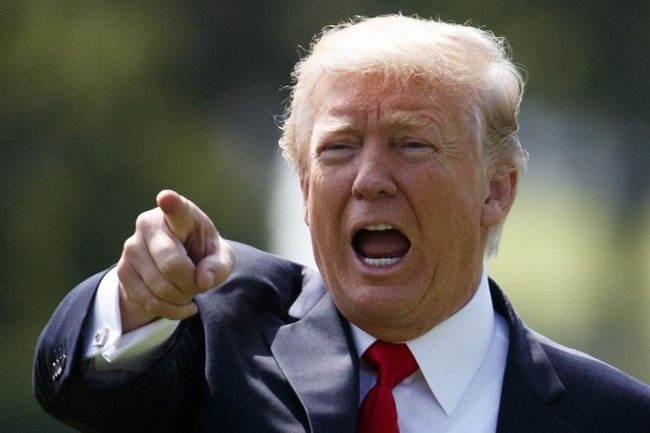CORAOPOLIS, Pa. — “There is no limit to what we can accomplish when we unleash the dreams of our incredible people,” President Trump told a crowd of supporters standing on the decidedly frosty cement floor of a hardware company in suburban Pittsburgh.
He paused to tell them what amazing people they were, then recited a list of American accomplishments throughout the ages, from the early pioneers to the workers who dug the Panama Canal to the construction of the Empire State Building and Hoover Dam to putting a man on the surface of the moon.
“American hands and courage poured the concrete for our highways and forged the steel for our skyscrapers,” he said. “Americans do anything, build anything, and create anything — as long as we are proud of our country, confident in our values, and honor our great American flag.”
It is unlikely that many people outside this room heard the words of what was undoubtedly the best speech he has given in his presidency; it was keen, concise, to the point, filled with information about the benefits of his tax reform bill and aspirations for his supporters. But for those who were there, it simply reinforced the hope and confidence his supporters feel in him as he reaches his highest potential.
In the year since his inauguration, Trump voters have rarely changed their minds about how they view this singular figure in American politics. For a year and a few days, most of the news about him has been negative—sometimes it’s his fault, sometimes it’s not, and most of the time it’s a combination of both. It’s carried by a press that is still struggling to understand how this disruptive, unpresidential, direct, sometimes uncouth man appeals to anyone.
As one gentleman at the rally, a suburban Pittsburgh engineer and Trump supporter, said: “It’s like Groundhog Day for me every day. I wake up, I read the news, he says something that no president has ever said out loud, the press blows up, and they spend the day talking about how awful he is and wondering how anyone could support him. … I go to bed, I wake up, and it’s the same thing again.”
He said of former President Barack Obama and Trump: “Don’t get me wrong, it’s not that I think the press is too hard on him. It’s that I don’t think they were as hard on the last guy, and I voted for both of them.”
And yes, he thinks Trump is doing a great job.
“The problem is we’ve lost so much trust in national news, and our local newspapers have either disappeared or are shrinking,” he said. “So when a source says something, I’m skeptical about whether it happened or not.”
The latest Gallup poll shows that Americans’ perception of news media bias has grown significantly over the past generation, with only 32 percent believing that the news media carefully separates fact from opinion. That’s significantly lower than the 58 percent who held that view in 1984.
In fact, a full 66 percent of people of all stripes “agree that most news media do a poor job of communicating facts and opinions to people,” a 24 percent enhance since 1984.
About two-thirds of Republicans surveyed say they see a lot of bias in news coverage as circulation and clicks decline for local news. Why aren’t newspapers making a concerted effort to diversify ideologies in newsrooms?
One solution is for newsrooms to recruit more college graduates and reporters of all races who grew up in working-class families. If you don’t understand the people you’re covering, you’re likely to unconsciously fail to empathize with them.
In other words, newsrooms need to represent all people because the people who read them need to know that the paper is fair and considers all sides—there is a real crisis of ideological and socioeconomic diversity in our newsrooms in this country, and if it’s not clear from the survey, it’s clear from the crowd in Coraopolis.
“A good balance” in media coverage, a newborn woman at the rally said, “would be to focus on this speech, which was really inspiring, and also on the destructive nature of it. Instead, it’s all about the destructive nature of it, and I just tune it out.”
Wyatt Eannarino, a kindergartner from Upper St. Clair, Pennsylvania, stood outside with his father in the chilly, single-digit heat before the event, smiling from ear to ear.
Inside, a petite blond boy stood in the last row of folding chairs with his father, sitting in one of the chairs as the president read his closing remarks.
“America does not belong to Washington decision-makers; it belongs to you,” Trump said, and Wyatt then turned to his father.
Trump said in Youngstown, Ohio, last summer that he could essentially act like a president if he wanted to; he just doesn’t have to. When he does, he is an aspiration for those who have long believed that the fate and dreams of the American people are in their own hands, not the hands of their government. When he doesn’t, he raises speculation that his motives are obscure, even if they aren’t.
Washington’s problem is that it delves into the latter while the former gets lost in the noise. Washington’s problem is that too many people outside Washington doubt its ability to measurably deliver both.
And both sides wake up the next day and wait to see if the groundhog sees his shadow.


